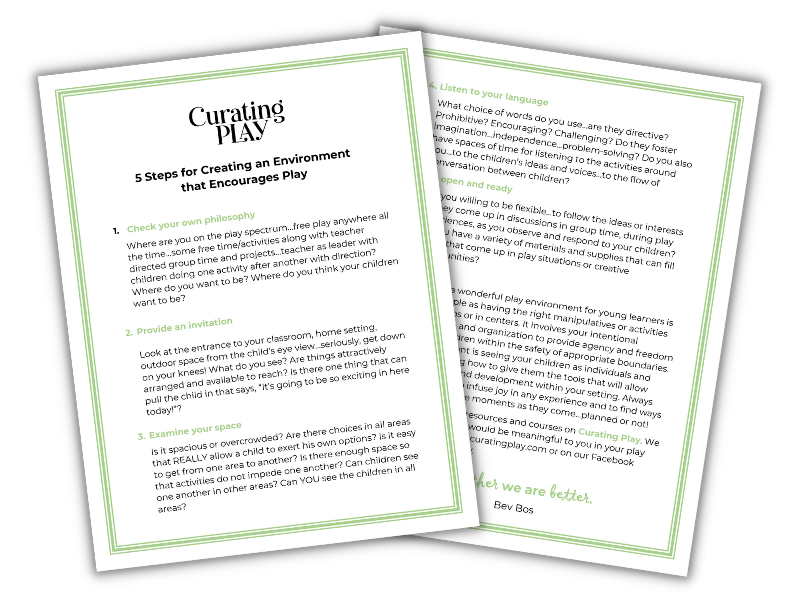As the sun shines longer and routines become looser, summer brings both a beautiful opportunity for unstructured play and a very real challenge: the ever-present pull of screens. Tablets, phones, TVs, and gaming systems can feel like a lifesaver for busy families—but for young children, unchecked screen time often crowds out critical experiences they need to thrive.
What Research Tells Us
Studies consistently show that too much screen time in early childhood is linked to delays in language, attention difficulties, sleep disturbances, and reduced opportunities for social interaction and physical activity (AAP, 2016; Madigan et al., 2019). In contrast, active play—especially outdoors—is strongly associated with healthy brain development, better self-regulation, and stronger executive functioning skills. Young children need real-world, multisensory experiences to develop the foundations for later academic and social success. Time outside has been shown to boost children’s physical activity levels, improve mood, and support social-emotional growth (Brussoni et al., 2015). It also reduces stress and helps children sleep better.
The best part? Children don’t need expensive equipment or complicated setups. Nature itself invites curiosity and movement—two key ingredients for learning and well-being. Summer is the perfect season to emphasize these screen-free, sensory-rich opportunities. Screens can supplement but never replace those essential activities.
Balance Is Possible—But It Takes Intention
It’s unrealistic—and unnecessary—to ban all screens. What matters most is how they’re used. Are they being used in a shared, interactive way? Are they crowding out opportunities to run, climb, pretend, create, and connect? Families and caregivers can make powerful choices by being proactive rather than reactive. Summer is the perfect time to reset routines and reinforce healthy screen habits that support—not short-circuit—development. Being screen AWARE doesn’t mean eliminating screens altogether. Instead, it’s about being intentional, informed, and attuned to how digital tools impact a child’s body, brain, and relationships. Screens aren’t going away—but the way we use them can shift dramatically for the better when we are AWARE.
A – Ask yourself what purpose the screen is serving.
Is it a digital babysitter so you can make dinner—or a family video call with a beloved grandparent? Not all screen time is created equal. Before turning on a device, ask: What is my child getting from this experience? What is being missed because of it?
W – Watch the clock and limit screen time.
The American Academy of Pediatrics recommends avoiding screens (except for video chatting) for children under 18 months and limiting use to one hour of high-quality content per day for preschoolers. Older children benefit from set time boundaries and screen-free zones (like mealtime and bedtime). Summer freedom doesn’t have to mean digital overload.
A – Actively co-view and co-play.
Watching together helps young children understand and process what they see. Pausing to ask questions, make comments, or relate the content to real life boosts comprehension and keeps screens social instead of solitary. It also prevents children from being passively entertained for long stretches.
R – Replace screen time with real-world experiences.
The brain wires itself through doing, not watching. Summer is perfect for sensory-rich activities like splashing in water, climbing, digging, building, and pretending. These interactions are how children learn to learn. And boredom? It’s not a problem—it’s the birthplace of creativity.
E – Establish screen rules and model healthy habits.
Children watch how we use screens, too. Adults who set down their phones during playtime or take a walk instead of turning on the TV show that relationships and real life come first. Decide together on daily screen-free times, and post the plan where everyone can see it.
The summer months can be magical. They are ripe with opportunity to connect, explore, and grow. Let’s use screens with intention, not on autopilot. Let’s make space for climbing trees, telling stories, building forts, and making memories.
Let’s be AWARE.





